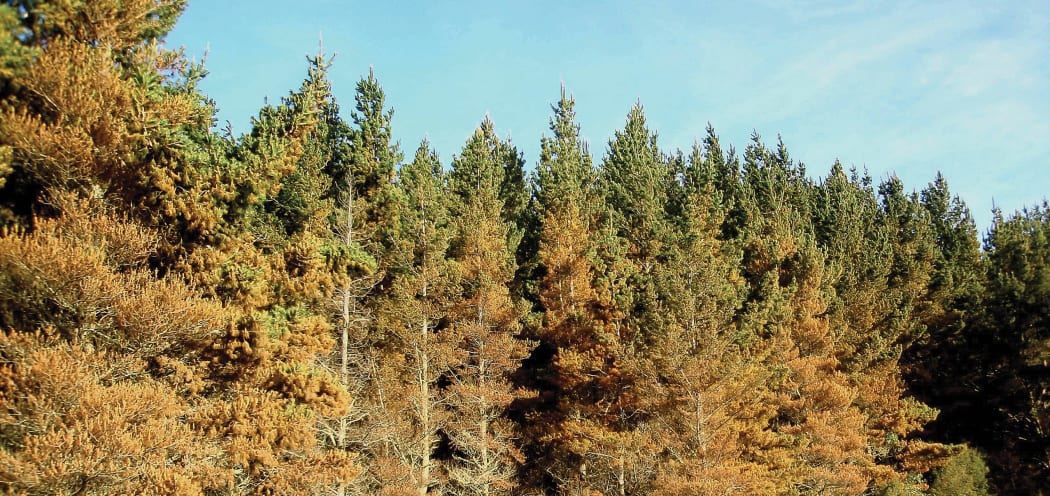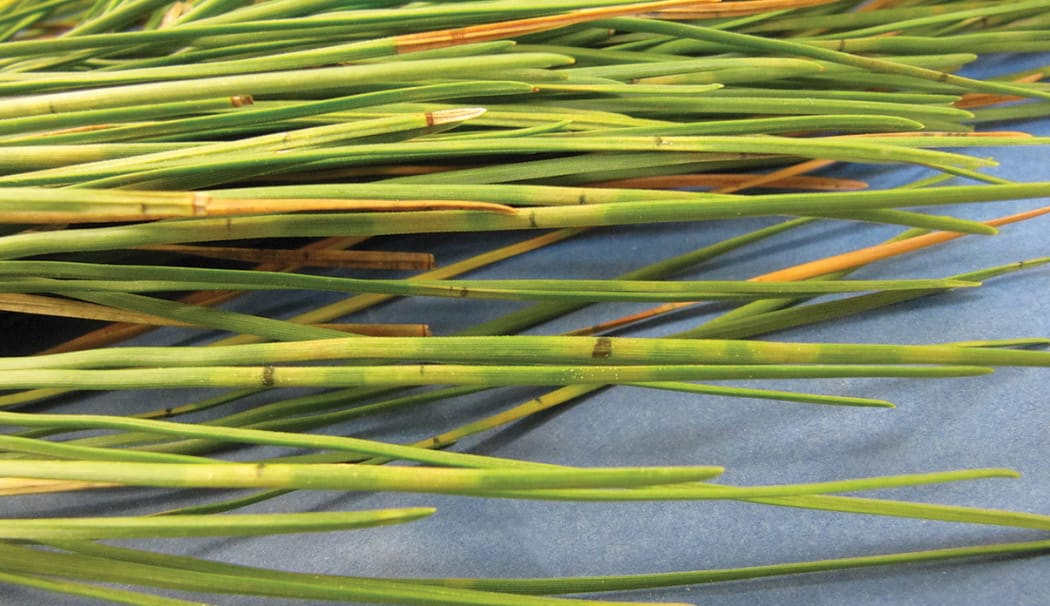A pine tree disease outbreak is spreading from Taranaki, through Wairarapa and down to Wellington.

Pine trees affected by red needle cast: The disease does not usually kill trees, but it can slow their growth. Photo: Supplied / Scion
The disease, red needle cast, attacks pine trees, causing defoliation and turning needles reddish-orange, but does not usually kill the trees.
It has been in the country since the early 2000s, but the run of wet weather this year sparked the outbreak in the North Island and another in Otago.
Scion's science leader for forest protection, Lindsay Bulman, said the disease was spreading.
"We get periodic outbreaks when we get prolonged wet weather ... wet, sort of foggy, misty weather - and that's just what we've had over the last three of four months and that's why we've got this outbreak now."
Mr Bulman said the disease would have a negative impact this year, but shouldn't hang around.
"Because the disease is building up, we will get defoliation this year ... but what we've found is that the following year we won't get any disease at all because the foliage drops, there is nothing to re-infect.
"So you get an outbreak year, followed by years where the trees will be thin-crowned but they will be green ... the trees will lose a little bit of growth in the years following defoliation, maybe 15 to 20 percent."

The disease leads to discolouration of the needles. Photo: Supplied / Scion
Research has shows that after three years the trees can fully recover. Mr Bulman said the pathogen, Phytophthora, which causes the disease, posed no risk to exports.
"The spores won't survive on the external surfaces of logs and it won't colonise the wood," he said.
He said people were worried about their trees looking sick at the moment, but they should be back to normal growth in the next couple of years.
Ministry for Primary Industries incursion investigator Dr Amin Pathan said it had been a good year for fungal growth.
"There have been a large number of reports of red needle cast disease from around the country and in places we haven't been seen before.
"Our lab has received higher numbers of notifications than 'normal' this winter. The cold and wet winter could have led to the wide spread occurrence of this disease."
In a statement, Horizons Regional Council said it was aware of the occurrence and the disease has been known to exist in Tararua for many years.
"In the area it has mainly affected pine trees, regardless of their age, and macrocarpa. Weather conditions this year are in the diseases' favour, causing it to become more prominent."


